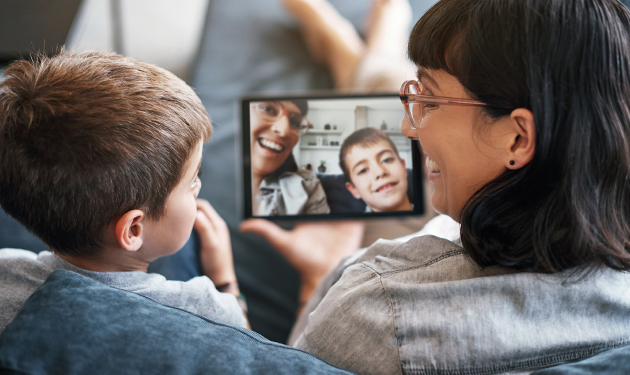
It’s important to know that if you are feeling nervous at the thought of spending days or weeks being quarantined with your young children – you’re probably not alone.
While the Morrison government has stopped short of recommending school closures in the wake of the coronavirus, the speed at which the pandemic is progressing may mean that finishing the term a few weeks early in an attempt to contain the outbreak is the logical next step. In fact, many parents are already choosing to do this this.
For others, keeping high-energy children occupied for four weeks or more is actually a scarier prospect than the thought of catching the virus itself.
To help put both your own and your children’s minds at ease, Smarter Communities has come up with some tips to help you and your energetic youngsters survive your period of social distancing in tack.
Routine is key
We all know and recognise that children and teenagers thrive on routine. Education academics and those who teach home schooling acknowledge that many children experience anxiety when their routine is disrupted.
These experts suggest it may help to plan a rough daily routine with designated times for schoolwork activities, exercise, chores and free play. By creating a rough routine, not dissimilar to a typical school day, children will know what to expect while also preparing ahead of time for the periods you will be fully available to them and the times you will be working or busy.
Staying in touch
Spending up to eight hours a day in school, most children are used to interacting in highly social environments and will therefore miss connecting with friends or family they are used to seeing regularly.
To help overcome this, consider facetiming or arranging some video calls with those they care about so they can catch up. Children just love to see each other over video link, the excitement is infectious and for little effort it could make their day.
For older children, consider encouraging them to reconnect with old friends or joining a group chat with their friends or classmates to share what has happened during their day.
Head to the kitchen
Most kids love to bake, particularly if there’s a chance they may get to enjoy something yummy at the end of it.
Having some unexpected time at home together is the perfect way to introduce your children to the joys of cooking, while also getting in some sneaky maths practice as they are introduced to the science behind cooking.
It is also a great way to meal prep ahead of time, helping to ensure when the craziness does eventually die down, you have even more time to share quality time together safe in the knowledge there are plenty of meals in the freezer.
Fresh air fundamental
Just because we are being advised against socialising in large groups, doesn’t mean heading outdoors for some brief respite each day is entirely off limits.
While health professionals advise against socialising in large groups, providing you are symptom and virus-free, there is nothing to stop you and your children heading onto your balcony to soak up some sun, taking the dog for a walk or heading around the block for a bike ride.
Just be careful not to mix in crowds, don’t loiter in your building’s common areas and don’t neglect washing your hands upon your return.
Good news
After seemingly enduring week after week of bad news, it may be nice to change the narrative by creating your own source of news.
By making a decision as a family unit what content to include in your interview, newspaper or magazine, you will not only develop a better understanding of what is important to your kids, but may even foster closer relationships between different generations of family members, close friends and neighbours through interviewing each other and developing new skills.
Screen time
Given some extra free time most children will head straight for the TV or other electronic device – a move which also frees you up to complete your work or household tasks. But as we all know too much screen time doesn’t do anyone any favours.
Experts suggest that your children’s ability to sustain attention increases over time so by rotating activities regularly, and aiming to complete one or two each day, it becomes easier over time to limit passive TV or screen time viewing.
Temporary measures
Whilst these are uncertain times we are experiencing, it’s not forever. There will be light at the end of the germ tunnel, we just need to ride it out and beat this virus. We need to remain calm, be great role models for our children, and be patient and empathetic with those around us.
Everyone you meet is fighting a battle you know nothing about. One kind word can change someone’s entire day. Be kind always. And if you can’t be kind, be quiet.











